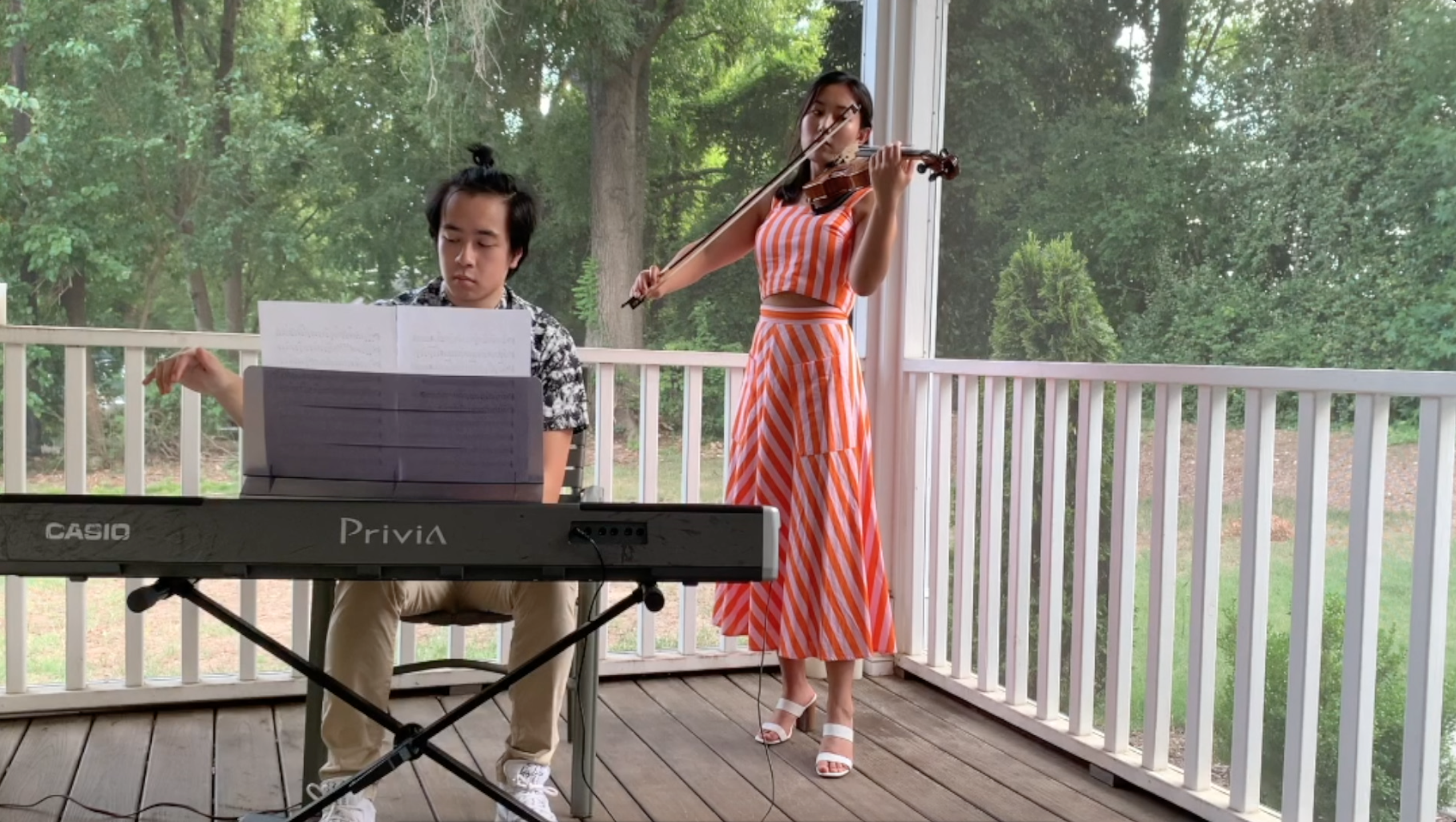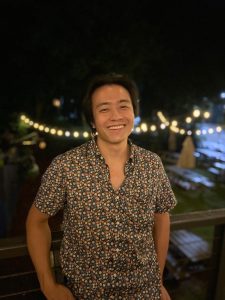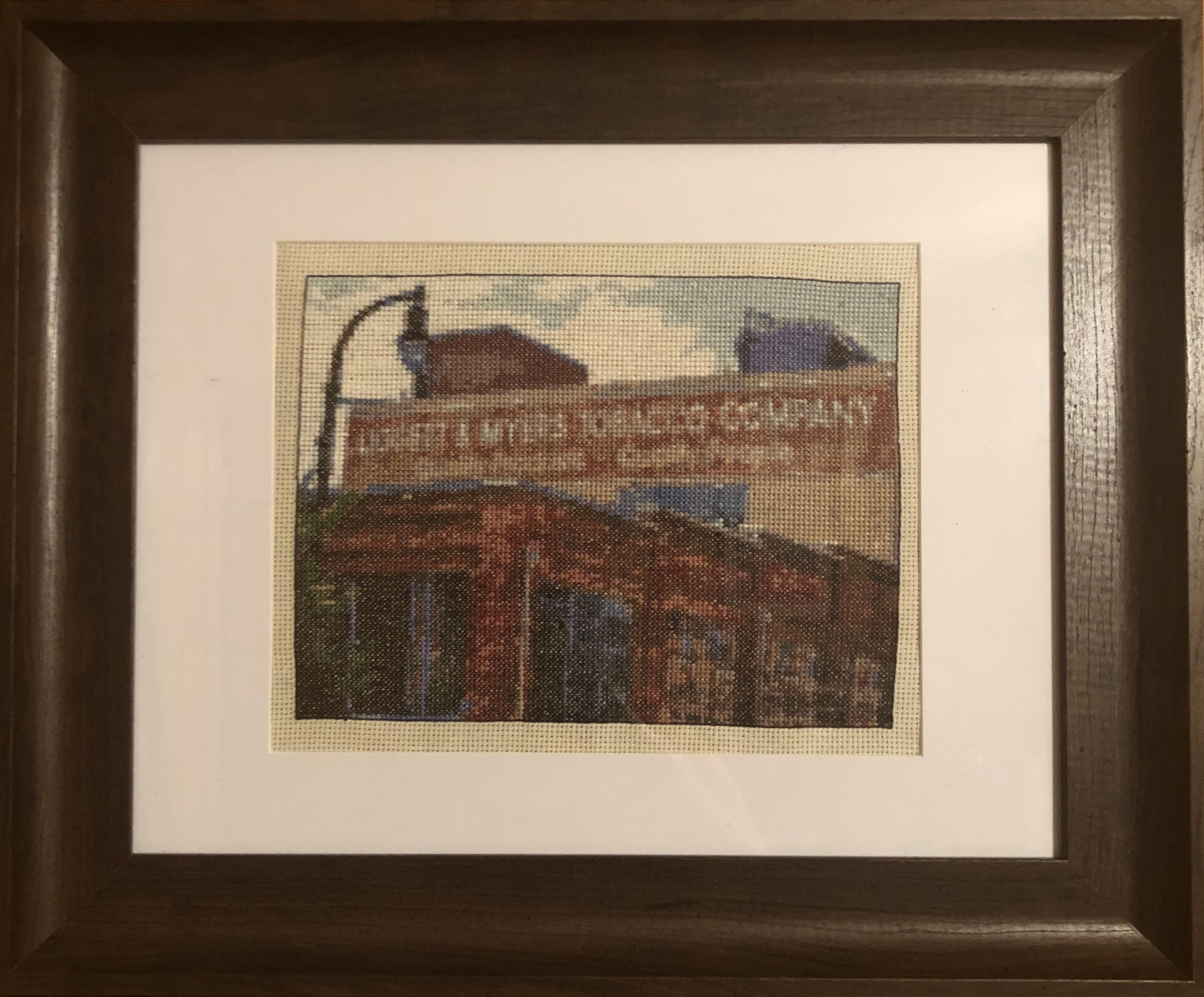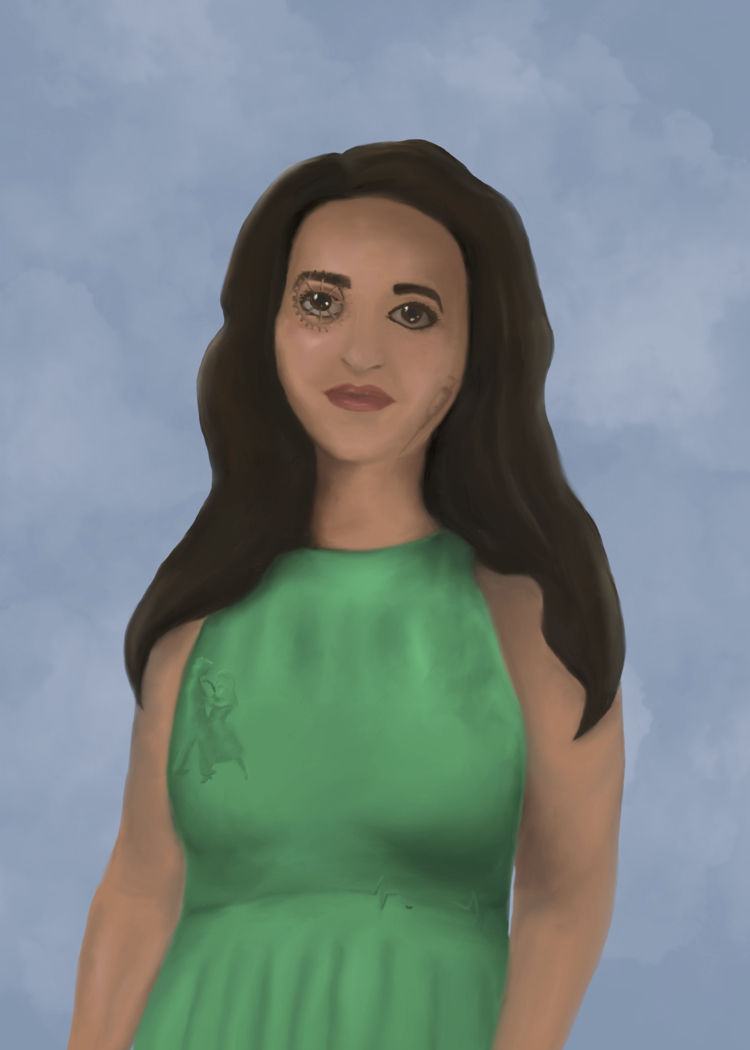The piece is composed of three sections: Illness, Determination, and Contentment.
Inspired by our patients’ ability to navigate their illness and learn to live with a chronic condition, we based this piece off of three stages of their journey. Scott’s patient suffered from neuropathy and a stroke and Sabrina’s patient suffered from neuromyalgia with chronic migraines, heightened sensation, and periods of vertigo.
The first section, Illness, represents the patient’s experience as she suffers from the condition (neuropathy/stroke/neuromyalgia) – it conveys a sense of lack of control, dizziness, and panic. The second section, Determination, is the patient’s motivation and willpower to commit to their treatment plan and recovery – the rhythmic bassline and forward momentum is march-like and conveys triumph as she overcomes difficulties with their condition. Finally, the last section, Contentment, is how the patient views their life in the present- they were able to overcome aspects of their illness and learned to manage their chronic condition to enjoy their life with friends and family.
About the Artist: Sabrina Wang
I find so much meaning in speaking with patients and getting to know who they are and what their story is. I chose to participate in SCOPES because oftentimes, these deep feelings and connections are hard for me to put into words and having grown up with a musical background, I am accustomed to channeling emotions and narratives as music. As cliché as it sounds to say that music is a universal language, I strongly believe in that, especially when it comes to more complex emotions that are not easily translated into words. I began playing the violin when I was in the 2nd grade and grew up learning how to play 4 other instruments as well, so musical expression has always been a big part of my life and is where my interest in the medical humanities stems from.
About the Artist: Scott Zheng
My interests in medicine include getting to know a patient through the narrative they tell and forming long-lasting relationships with them. Outside of medicine, music has been a large part of my life since I was 5 years old, as I grew up playing the piano, violin, and guitar. I began composing and improvising music when I was 12, as it provides an outlet for creative and emotional expression, which is unique.
I chose to participate in SCOPES because it provided me an opportunity to combine my interests in learning about a patient and expressing myself through music to tell the patient’s story and share it with others.







